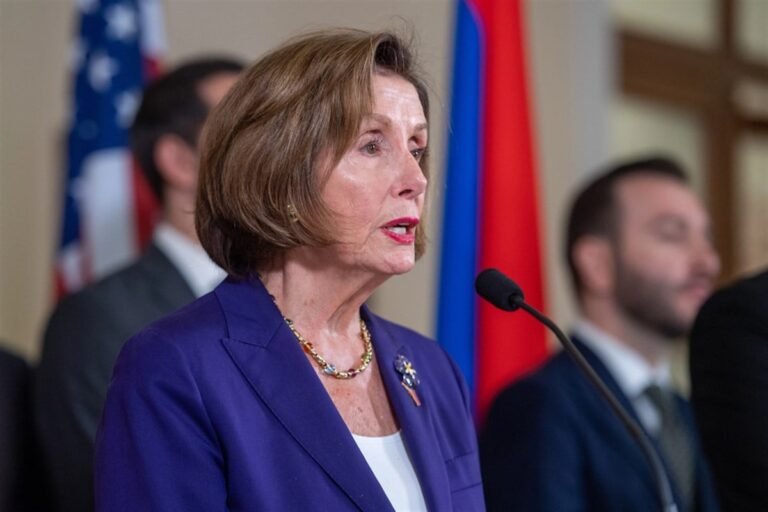
Good morning. As the Q2 2025 earnings season begins, CFOs are navigating a landscape shaped by new tariffs, shifting consumer demand, and heightened market scrutiny.
The first quarter benefited from a pull-forward of demand ahead of anticipated tariffs. In contrast, the second quarter will test companies’ ability to manage margin pressure, supply chain disruptions, and evolving trade policy risks.
Major U.S. banks are among the first to report results this week. For all companies reporting, analysts will be “laser-focused” on how President Donald Trump’s import taxes are affecting corporate profits, according to Morningstar. A key theme is the impact of tariffs and trade policy uncertainty, with analysts closely watching for margin pressures, signs of slowing consumer demand, how companies are preparing for new tariffs, and how they are handling levies that have already been implemented.
Markets have remained relatively calm heading into Q2, with major indices like the S&P 500 and Nasdaq recently reaching new highs. Morningstar notes that Q2 earnings are expected to reveal trends among firms in tariff-affected industries. Companies with higher costs and tighter margins may be forced to absorb more tariff expenses, while those with stronger competitive advantages may be able to pass more costs onto consumers.
The momentum that propelled the S&P 500 to nearly an 11% gain in Q2 and more than 7% year-to-date will be tested this week, according to Saira Malik, chief investment officer at global investment manager Nuveen. Malik highlighted in a LinkedIn post on Monday two key dynamics: the unofficial start of earnings season with Q2 reports from the financial sector, and a series of U.S. economic data releases, such as the Consumer Price Index (CPI) scheduled for release this morning.
Malik adds, “While overall earnings growth is expected to decelerate from last quarter, estimates have stabilized in recent weeks after falling sharply in early April. Still, the Q2 earnings bar is relatively low.”
On the economic front, Josh Hirt, senior U.S. economist at Vanguard, expects core CPI to increase 0.25% month-over-month (2.9% year-over-year) and headline CPI to rise 0.29% month-over-month (2.6% year-over-year), reflecting moderate strength following May’s soft print. “While tariff-related pressures are beginning to show in select goods categories in the PCE, the overall passthrough into CPI remains limited for now as firms hold off on retail price hikes,” he said in an emailed statement.
Regarding CFO sentiment, Deloitte’s Q2 2025 CFO Signals report released last week found that growth expectations declined across every key operational metric, with finance chiefs lowering projections for revenue, earnings, and capital investments.
However, Steve Gallucci, global and U.S. leader of Deloitte’s CFO Program, described the current environment as a recalibration, not a retreat. Finance leaders are doubling down on fundamentals: sharpening focus on growth drivers, managing controllable risks, and staying active in M&A.
Sheryl Estrada
sheryl.estrada@fortune.com
Leaderboard
Fortune 500 Power Moves

Marriott
Leeny Oberg, CFO and EVP of development at Marriott International (No. 171) has decided to retire effective March 31, 2026, after spending more than two decades with the U.S. hotel operator. Oberg, CFO since 2016, will be succeeded by Jen Mason, who joined Marriott in 1992 and currently serves as global officer, treasurer and risk management. Mason is also a former CFO of the U.S. and Canada at the company. Shawn Hill was promoted to the role of EVP and chief development officer, effective Jan. 1. Oberg has been in that role since February 2023.
Every Friday morning, the weekly Fortune 500 Power Moves column tracks Fortune 500 company C-suite shifts—see the most recent edition.
More notable moves
Sarah C. Young was appointed CFO at Bell Partners, a privately held company specializing in apartment investment and management, and will succeed John Tomlinson upon his planned retirement effective Aug. 22. Young joined the company on July 9 and will report to Lili Dunn, CEO and president of Bell Partners. After his retirement, Tomlinson will remain as an advisor to the company through the end of 2025. Young previously served as CFO and senior managing director at Quarterra Group, a subsidiary of homebuilder Lennar, where she worked for 10 years. Before that, Young was part of the finance group at Walton Street Capital.
Big Deal
Although AI remains a top focus, NACD says it is clear from survey responses that organizations are in very different positions with respect to AI adoption and implementation. Some companies are in the middle of the implementation of AI projects, working to “move beyond pilots to deployments” or focusing on improving governance of AI, including determining “where it can be implemented and why, and internal controls around verification of output.”

Going deeper
“Elon Musk spent months slashing federal contracts — Now his AI company is celebrating a $200M Pentagon contract and new unit to get government business” is a new Fortune report by Jessica Mathews.
Elon Musk’s xAI, a two-year-old AI company, said in a blog post Monday that it has launched a new division, called “Grok with Government,” and signed a contract worth up to $200 million with the Department of Defense, Mathews writes. xAI also announced that it had been added to the General Services Administration schedule, meaning that xAI products will now be available for purchase across every government office and agency. Read more here.
Overheard
“Let’s ensure the path to business ownership isn’t closed off by Wall Street’s python but remains open to every American willing to lift themselves and their families.”
—Brian Hamilton writes in a new Fortune opinion piece. Hamilton founded Sageworks, a since-acquired fintech company that helped business owners translate complex financial information. He also starred in ABC’s Free Enterprise, and founded the Brian Hamilton Foundation and Inmates to Entrepreneurs.



